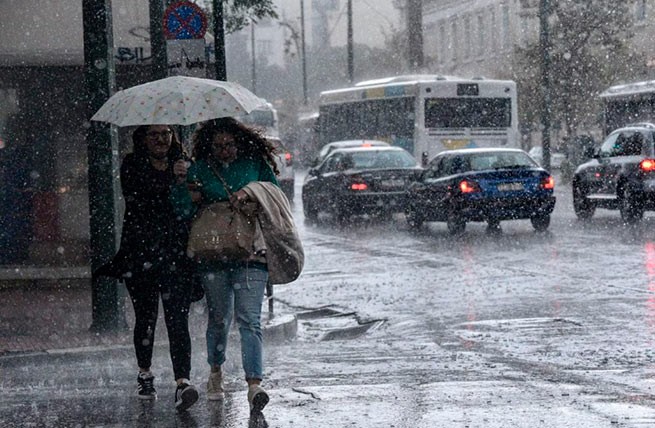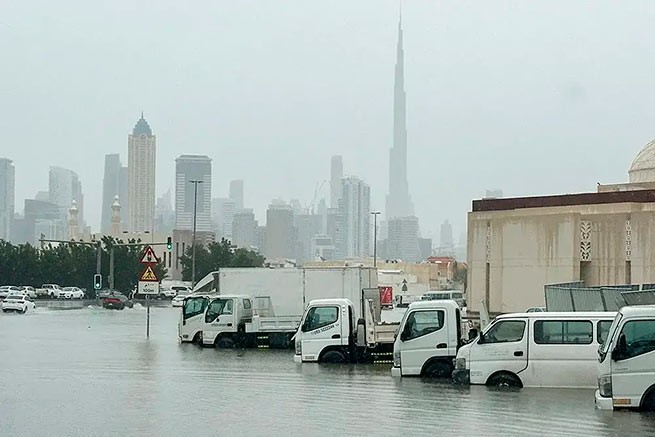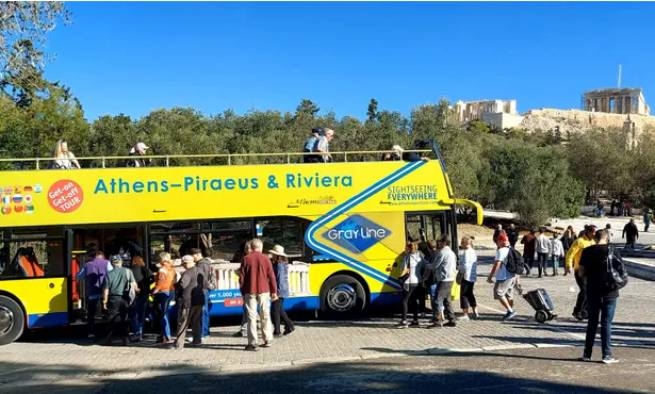While the Greek government is content to count the profits from the 2022 tourism boom, experts are warning of a threat looming over ancient monuments.
Edition The Guardian Greek Tourism Minister Vassilis Kikilias quotes:
“We’re having a great year. December is coming, and the season is still going on, which is exactly what we want to gradually extend it.”
However, a red alert fire has already been lit: a tourist explosion in Athens threatens ancient monuments. The number of visitors this year will reach 30 million. How to balance economic benefits with the preservation of the unique sights of the Greek capital? At the height of the summer season, about 16,000 tourists climbed the Acropolis every day. Shopkeepers say they’ve never been so good in the lanes of Plaka. But Anna Simou, an employee at a contemporary Greek design store, says with a sigh:
“Anyway, right now we just want them to go home right now. We are all tired, and management is hiring new employees.”
Mr. Kikilias, however, is happy to note that tourism in Athens and in Greece as a whole has exceeded the wildest expectations. The sector was set to bring in 15 billion euros this year and seemed doomed when orders were frozen in February at the start of Russia’s invasion of Ukraine. Instead, revenues are expected to exceed 18 billion euros and visitor numbers approach 30 million, nearly three times the country’s population. And all this despite the war, the lack of tourists from China and the unwanted appearance of jellyfish on Greek beaches.
However, such an active recovery from the pandemic carries certain risks. As Kikilias points out, this thriving industry should be more evenly distributed outside the “two and a half regions” that attract huge numbers of tourists. Sustainability is also on the minds of the mayor of the capital, Kostas Bakoyannis, who last week called for a city tax on visitors to help deal with the surge in demand for services. Unlike earlier times, when the Greek capital was seen as a transit route to the islands, more than 7 million tourists visited the capital this year. Kostas Bakoyannis says:
“It is not fair that 650,000 permanent residents in the heart of ancient Athens have to pay the bills. If we want to support the city, we need to adapt in the same way as almost any other European capital and introduce a city tax on visitors.”
Americans, who arrive on 63 direct flights a week, played a key role in making Greece the world’s third most popular tourist destination this year, according to the data. But as officials count the success of the sector, which accounts for 25% of GDP, the specter of “overtourism” has raised concerns about the dangers posed to cultural property by a surge in visitor numbers.
Greece is home to 18 UNESCO World Heritage Sites, and experts stress that a delicate balance needs to be struck between protecting ancient monuments and developing them for tourism use. Leading UNESCO Tourism Adviser Peter Debrine says:
“The red lights are flashing. We have to start wondering if this is too much, and 16,000 visitors slaughtering a monument like the Acropolis every day is too much.”
With tourism booming in both Europe and the US, Debrine said it’s important to take action on capacity at popular heritage sites:
“A radically different approach is needed, one that starts with consumers and extends to tourism and heritage management. It is clear that the authorities must take action to reduce crowding at World Heritage sites if the tourism experience is not degraded and conservation is assured.”
At the UNESCO 50th Anniversary convention in Delphi, where the effects of the climate crisis and overtourism were discussed, he urged attendees to change marketing tactics to focus on attracting fewer, high-spending, lower-impact tourists rather than larger groups:
“We hope that soon tickets will be sold only online, because this will be a sure way to limit access. Adjustment of ticket prices, depending on the season, can also be forced, since entrance tickets will cost more in the height of summer. Choosing to travel during the low season or off-season has a huge impact. We understand that tourism is the lifeblood of so many communities and vital to the local economy, but over-tourism is a real danger. Either you are smart and take action, or you kill the goose that lays the golden eggs.”







More Stories
Greek "Iron Dome" and F-35 as a missile hunter
How Germany began to buy “dirty energy” by abandoning nuclear power plants
Demographics and debt: if its repayment is not removed/rescheduled, Greece will be destroyed